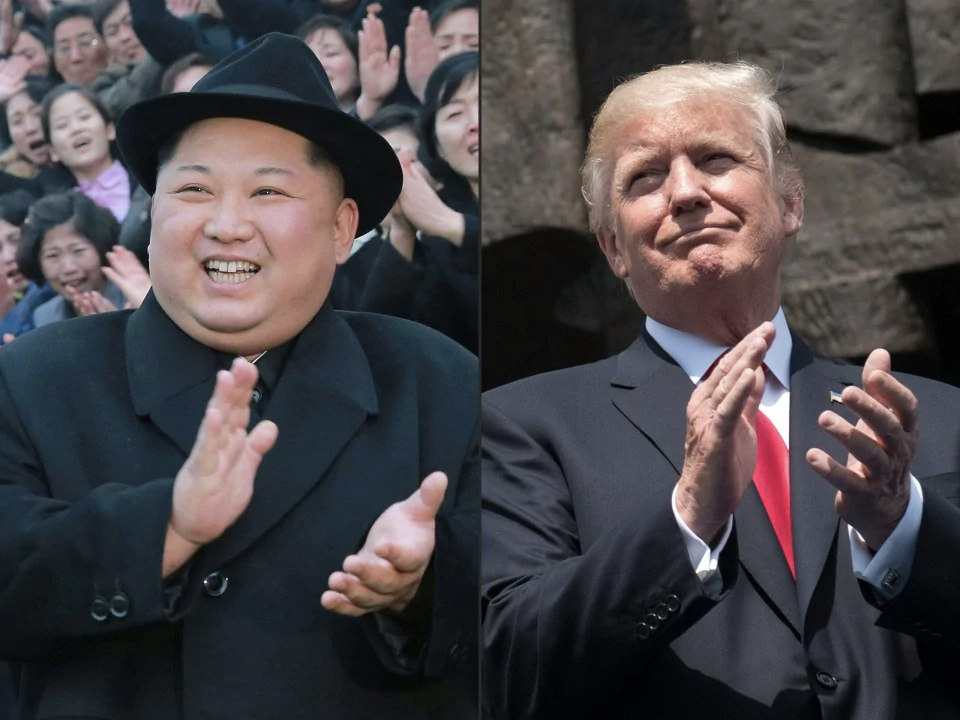William J. Perry was U.S. defense secretary from 1994 to 1997. He is among the few senior U.S. officials to have negotiated directly with the North Koreans.
In 1994, President Jimmy Carter met with officials in Pyongyang to negotiate the denuclearization of North Korea. In 1999, I met in Pyongyang to negotiate the denuclearization of North Korea. Now, nearly 20 years later, it seems possible that President Donald Trump could meet with Kim Jung Un to negotiate the denuclearization of North Korea. There are a few lessons that this administration can learn from the successes and failures of those previous attempts.
The first and most fundamental is that North Korea, at a very high cost, is pursuing a nuclear program to ensure the survival of its regime. Second, North Korean leaders are not crazy. They are despotic, they are ruthless, they are cruel to their own people — but they are not irrational. Their intent is to stay in power.
Third, the regime is not driven by ideology. Basically, North Korea cannot afford an ideology that does not support the overarching goal of sustaining its regime. As a result, its leaders are quite flexible in the means they use to achieve that goal. A corollary of this is that they are not bound by ethical or moral standards, so an agreement is not really binding for them. If they see some advantage in breaking an agreement, they will, particularly if they can do so clandestinely. Fourth, while they do value economic incentives and will bargain for them, they will never trade regime survivability for economic benefits.
These lessons call into question whether the U.S. can ever achieve its stated goal of denuclearization, now that North Korea has a nuclear arsenal. What could we offer the country that would persuade it to give up its nuclear arsenal and remain confident of staying in power? Would American security assurances do that?
I offered them such assurances in 1999, and they were very interested. But at that time, they did not have a nuclear arsenal and could not have been sure that they would be able to build one. So they were not considering giving up a nuclear arsenal but rather giving up the right to try to build one. Even so, it was a hard sale. So I have a high degree of skepticism that North Korea will really negotiate away the nuclear arsenal it now has, even though South Korean officials have claimed Pyongyang is open to it.
But suppose my skepticism is misplaced, and we can actually negotiate denuclearization. How will we verify it? Verification is critical in any arms control agreement, but particularly so with North Korea, given its history of breaking agreements. We do not know how many nuclear weapons are operational or under construction. We do not know where all the nuclear facilities are located. And counting warheads is fundamentally difficult, particularly in a country rightly called the “Hermit Kingdom.”
Our nuclear treaties with the Soviet Union counted operational missiles, which we could verify, and inferred the number of warheads, which we could not directly verify. To this day, the U.S. does not know how many nuclear warheads Russia has in reserve or storage, and the error in our estimates could be in the thousands. So it would be a fundamental error to believe that we can reliably verify a treaty by which North Korea agrees to dismantle all of its nuclear weapons and not build more.
However, just because we can’t verify a denuclearization agreement doesn’t mean we shouldn’t have any agreement. Given that North Korea has a nuclear arsenal, we must contain and deter that arsenal. We can strengthen our containment by reaching an agreement with North Korea on a testing ban and a ban on any transfer of nuclear technology or components. Such an agreement would not be as desirable as denuclearization, but it can be negotiated and, once negotiated, it can be verified. Even with this lesser agreement, verification is not simple, especially with the ban on transfer. With this ban, we will need to negotiate intrusive inspection features, such as we negotiated years ago with the Soviet Union.
Useful results can be obtained from negotiations but not the results being advertised. My fear is that the negotiations will be a failure because we will enter into them with unrealistic expectations. Even so, I believe that a deal can be had that will significantly improve our security. We should not let the best be the enemy of the good.
This was produced by The WorldPost, a partnership of the Berggruen Institute and The Washington Post.





